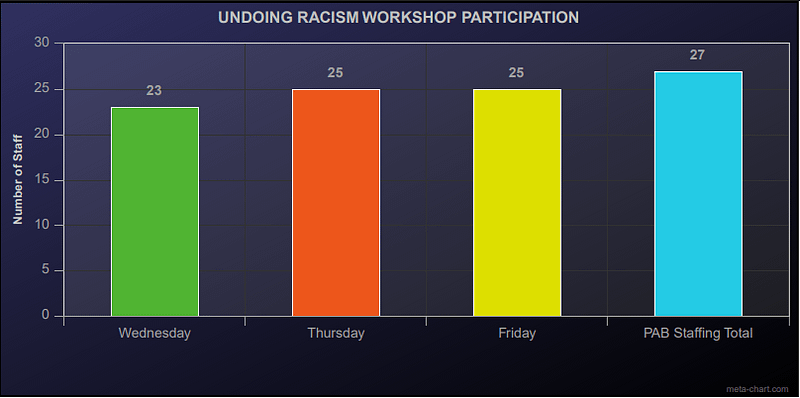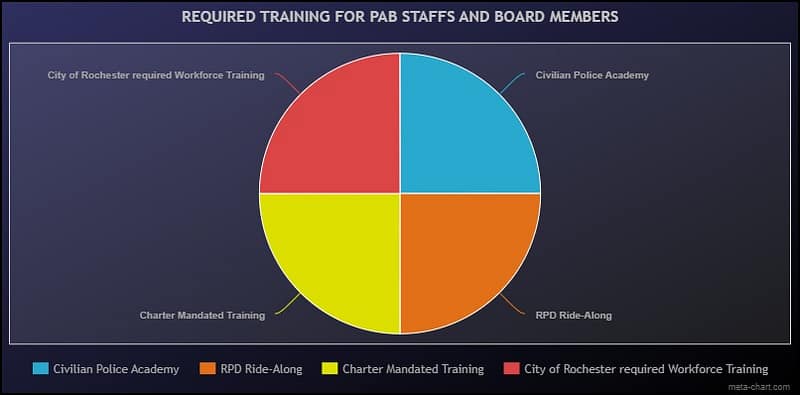OPERATIONS DIVISION
Operational Division Structure
The Operations Division manages the PAB’s core functions, including policy development, staff coordination, and budget planning. It also serves as the agency’s HR liaison, supporting personnel matters and organizational development. This division ensures operational integrity and compliance with legal and ethical standards.
In addition, the Operations Division manages the development and delivery of internal training programs. Along with onboarding and ongoing professional development, the unit ensures compliance with City-mandated training requirements covering topics such as human rights, bias awareness, and legal updates. Ensuring staff are well prepared to fulfill their roles.
Required Training for PAB Staff and Board Members
Training is critical component of the Operations Division’s strategy for maintaining excellence in oversight. All staff and board members are required to complete the following:
- Civilian Police Academy
All staff and board members must complete the 10 week Civilian Police Academy. This Academy provides a broad-based look at the policies, procedures and operations of the RPD.
Rochester Police Department (RPD) Ride-Along Requirement
All staff are required to complete a ride-along with the Rochester Police Department to gain firsthand insight into law enforcement practices and daily police operations.
-
Undoing Racism Workshop, September 17 –19, 2025
PISAB has a long-standing relationship with the City of Rochester, bringing a wealth of experience, historical context, and trusted framework for facilitating meaningful dialogue and advancing long-term racial equity efforts across city supported programs and structures
We are also sharing a graph illustrating staff participation in the Undoing Racism workshop. This visual reflect the PAB’s transparency and continued progress toward equitable outcomes and community accountability.

Monitoring & Continuous Improvement
The Operations Division regularly assess training outcomes and identifies gaps through.
- Internal performance reviews and one-on-one meetings.
- Feedback from community engagement
- Updates in local and federal legal standards
- Comparative insights from external oversight bodies.
Charter-Mandated Training Areas
As outlined in § 18‑7 of the City Charter (L.L. No. 2-2019; L.L. No. 3-2021), PAB operational staff must receive training in the following areas:
- Relevant local, state, and federal laws
- Implicit bias and antiracism
- Gender identity and sexuality
- Disability rights (physical, developmental, psychiatric, and traumatic brain injuries)
- Classism, poverty, and homelessness
- Trauma-informed policing and crisis intervention, including RPD officer wellbeing
- RPD policies, practices, and procedures
- The Police Accountability Board local law
- History, models, and best practices of civilian oversight
- Techniques for independent and objective investigations (e.g., interviewing, evidence collection)
- Community outreach and public reporting
- Disciplinary systems and remediation, including early warning systems and grievance/arbitration processes
Adjustments to training content and frequency are made to ensure continued alignment with best practices and operational demands.
